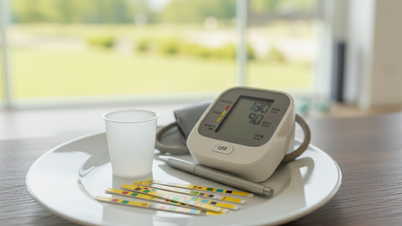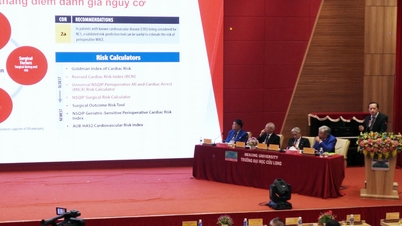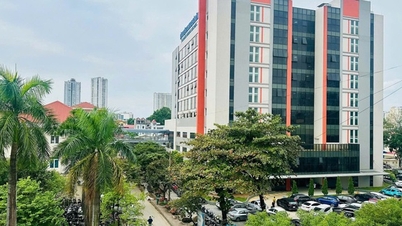The kidneys are responsible for maintaining the balance of calcium and phosphorus in the blood, converting vitamin D and regulating hormones, especially parathyroid hormone. When the kidneys are not functioning properly, these functions are affected, causing an imbalance between bone resorption and bone formation, leading to weak bones, brittle bones and joint pain, according to the health website Medical News Today (UK).

Kidney failure can cause prolonged bone and joint pain.
PHOTO: AI
This condition is called renal osteoporosis, which occurs due to impaired kidney function. In the early stages, the disease often has no symptoms. But when it reaches the later stages, the patient often feels muscle weakness, fatigue, cramps, bone pain, bone fractures, joint pain, especially in the joints that bear the main weight of the body such as the knees, hips and shoulders.
Impaired kidney function causes bone and joint pain through the following mechanisms:
Lack of active vitamin D
Healthy kidneys convert vitamin D into its active form, calcitriol, which aids in the absorption of calcium from the gut and helps regulate parathyroid hormone. When kidney function is poor, calcitriol levels decrease, leading to reduced calcium absorption.
Calcium and phosphorus disorders
As the kidneys fail, phosphorus excretion also decreases, leading to increased blood phosphorus levels. This condition, combined with reduced vitamin D activation, leads to reduced calcium absorption, which in turn increases parathyroid hormone.
Increased parathyroid hormone
Due to the combination of high blood phosphorus, low calcium, and low vitamin D, the parathyroid gland responds by increasing hormone secretion. High parathyroid hormone mobilizes calcium from the bones to supply the body. The result is reduced bone density, making bones more brittle, causing bone and joint pain, tendon pain, and pain around the joints, often persistent.
Muscle inflammation and weakness
Chronic kidney disease is often accompanied by inflammation and accumulation of toxic metabolites that cause muscle fatigue, muscle pain, and affect joint mobility. In addition, malnutrition, such as protein or vitamin deficiency, also causes poor muscle and bone recovery.
When diagnosed with kidney-related bone and joint pain, the patient needs to take measures to relieve pain, protect bones and improve quality of life. The doctor will recommend dietary adjustments, medication and other medical therapies, according to Medical News Today .
Source: https://thanhnien.vn/dau-hieu-than-yeu-it-ai-ngo-toi-185250913160413757.htm







![[Photo] Cutting hills to make way for people to travel on route 14E that suffered landslides](https://vphoto.vietnam.vn/thumb/1200x675/vietnam/resource/IMAGE/2025/11/08/1762599969318_ndo_br_thiet-ke-chua-co-ten-2025-11-08t154639923-png.webp)
































![[Video] Hue Monuments reopen to welcome visitors](https://vphoto.vietnam.vn/thumb/402x226/vietnam/resource/IMAGE/2025/11/05/1762301089171_dung01-05-43-09still013-jpg.webp)


































































Comment (0)